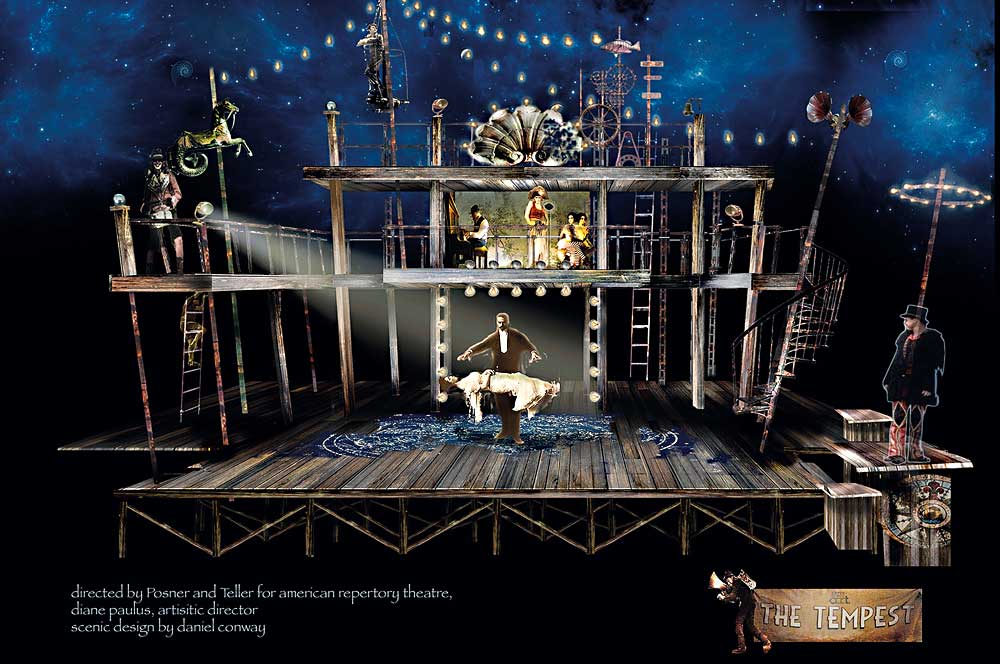
Be not afeard. The isle is full of noises,
Sounds, and sweet airs, that give delight and hurt not.
Thus opens Caliban’s speech in Act 3, scene 2 of Shakespeare’s The Tempest, where the trickster summons a sort of music and magic on Prospero’s island. Director Aaron Posner, co-director and magician Teller, and songwriters Tom Waits and Kathleen Brennan are bringing that magic to literal life in their production, which runs May 11–June 15 at the American Repertory Theater. “We’re working in the service of Shakespeare’s text,” explains Teller. “We’re trying to do what Shakespeare would have done if he had some really good magicians on staff.”
But the Bard might have had some magic of his own; the stage directions in the feast scene make reference to a “quaint device,” which makes the spread disappear. “A quaint device is a trick. This is not just carrying a table off,” Teller says, guessing that maybe a trap door was used. However, there have been many developments in stage magic since then, so don’t think Teller will resort to just a hole in the floor. “Part of your job as a magician is to think of what people would think of, and then not do that,” he explains.
Teller and Posner previously collaborated on Macbeth at Washington, D.C.’s, Folger Theatre in 2008, and Teller has wanted to do Tempest since he was a young boy. His grandfather gave him a set of Shakespeare, and his father pointed out the magical elements in the play. “Now that I’ve spent a lifetime’s career in magic, this play has even more meaning for me,” he says. “It’s about this moment in Prospero’s life where his obsession with magic becomes a choice between sticking with this obsession that is the very essence of his being, or taking care of his daughter…The very idea of giving up magic sticks its claws into my heart.”
This Tempest takes on an Americana aesthetic, placing the play in the world of the tent-show magician, and unfolding in a sort of Coney–Island-ified universe. There’s also a four-piece band onstage, jamming to tunes on homemade (and other) instruments, though the songs serve more as pageantry songs than narrative songs.
“We call the band Rough Magic,” Posner says. Luckily, the musicians aren’t required to perform any tricks (like the actors) or inventive movement, created by dance company Pilobolus. (Caliban is played by two men as a sort of double-headed monster.)
“They play excellent music, which is kind of a magic,” Posner continues. “The magic and the music are totally woven into each other. Who knows where the magic begins and the music ends and the play picks up?”

